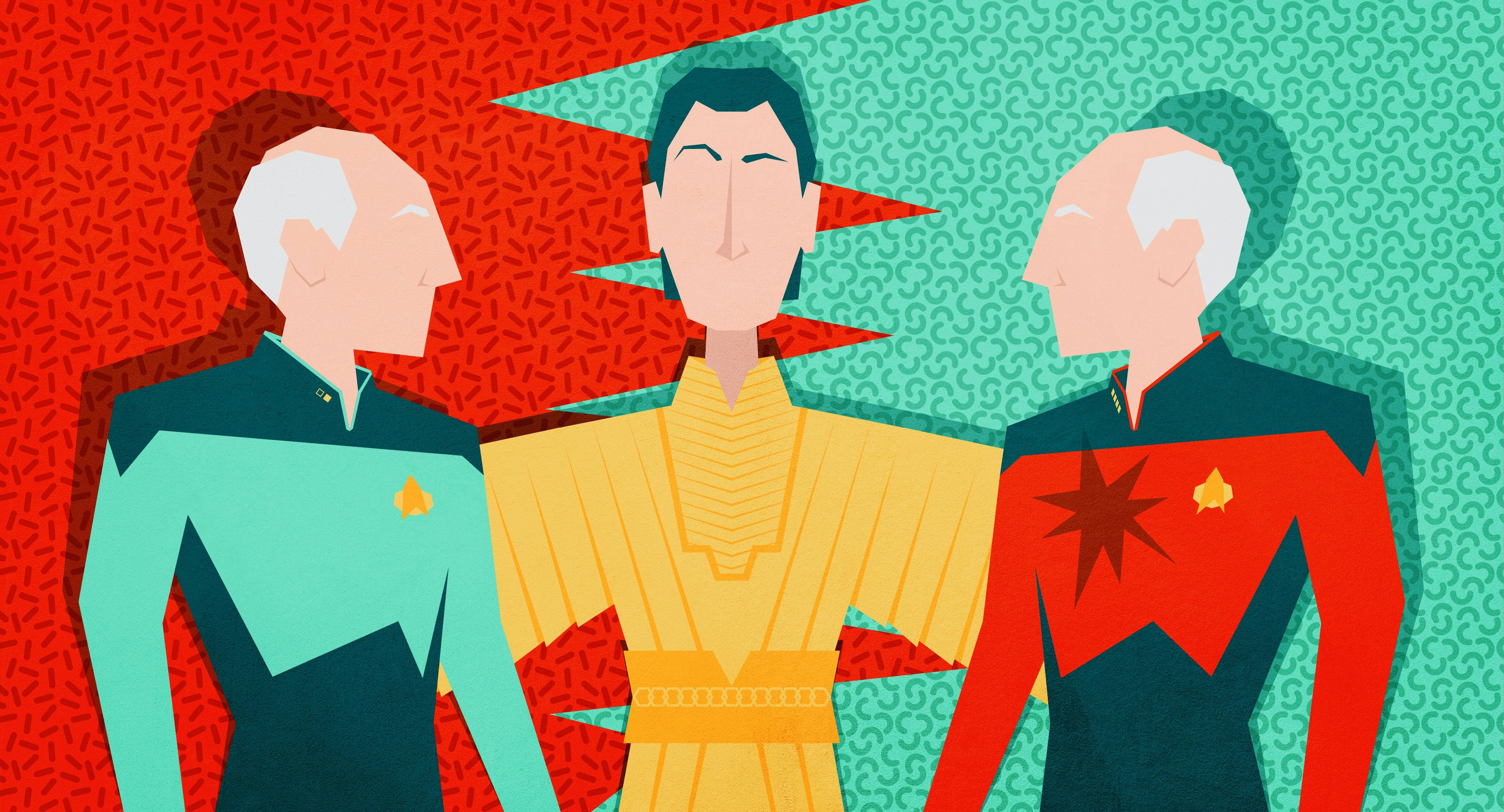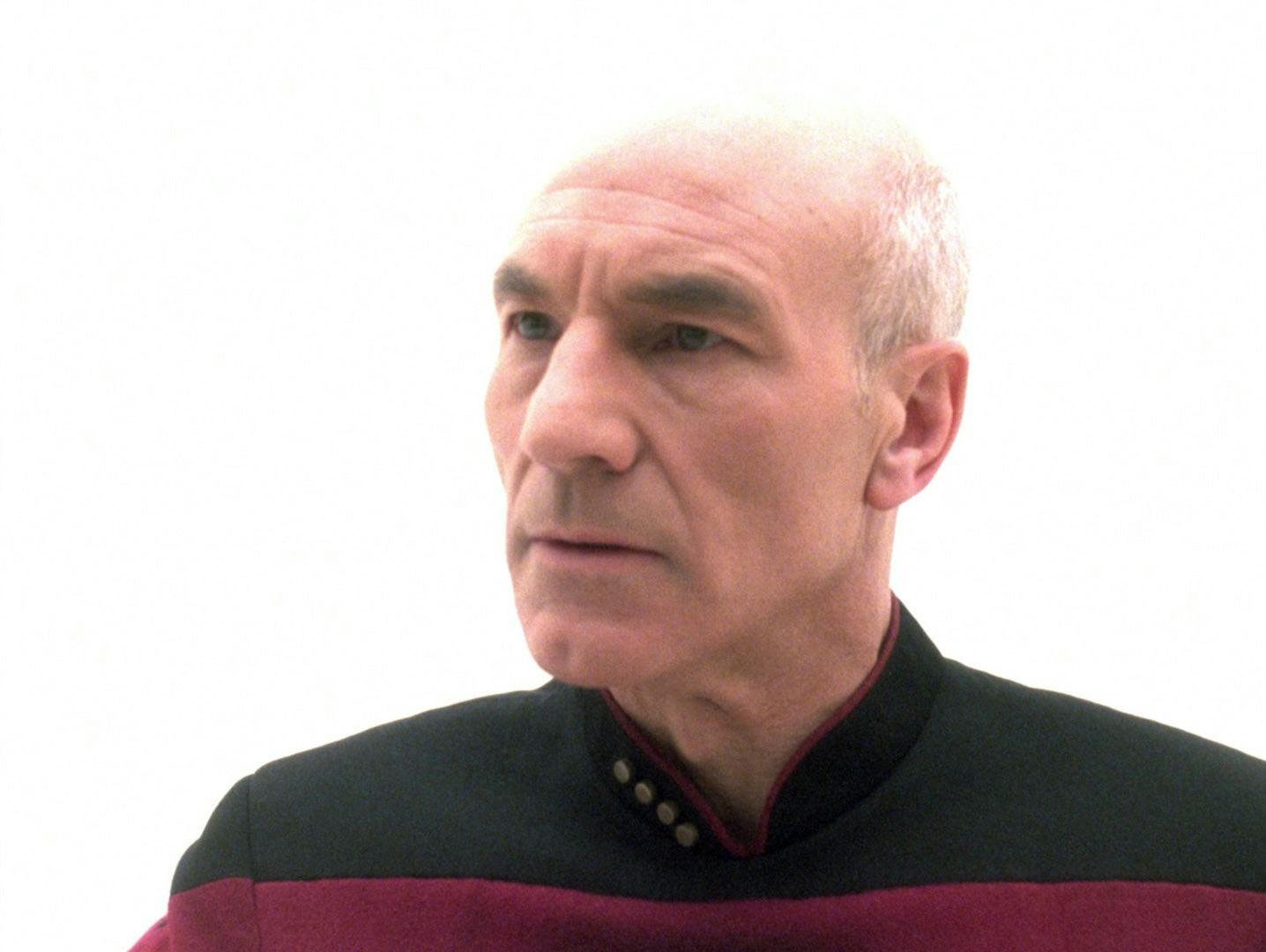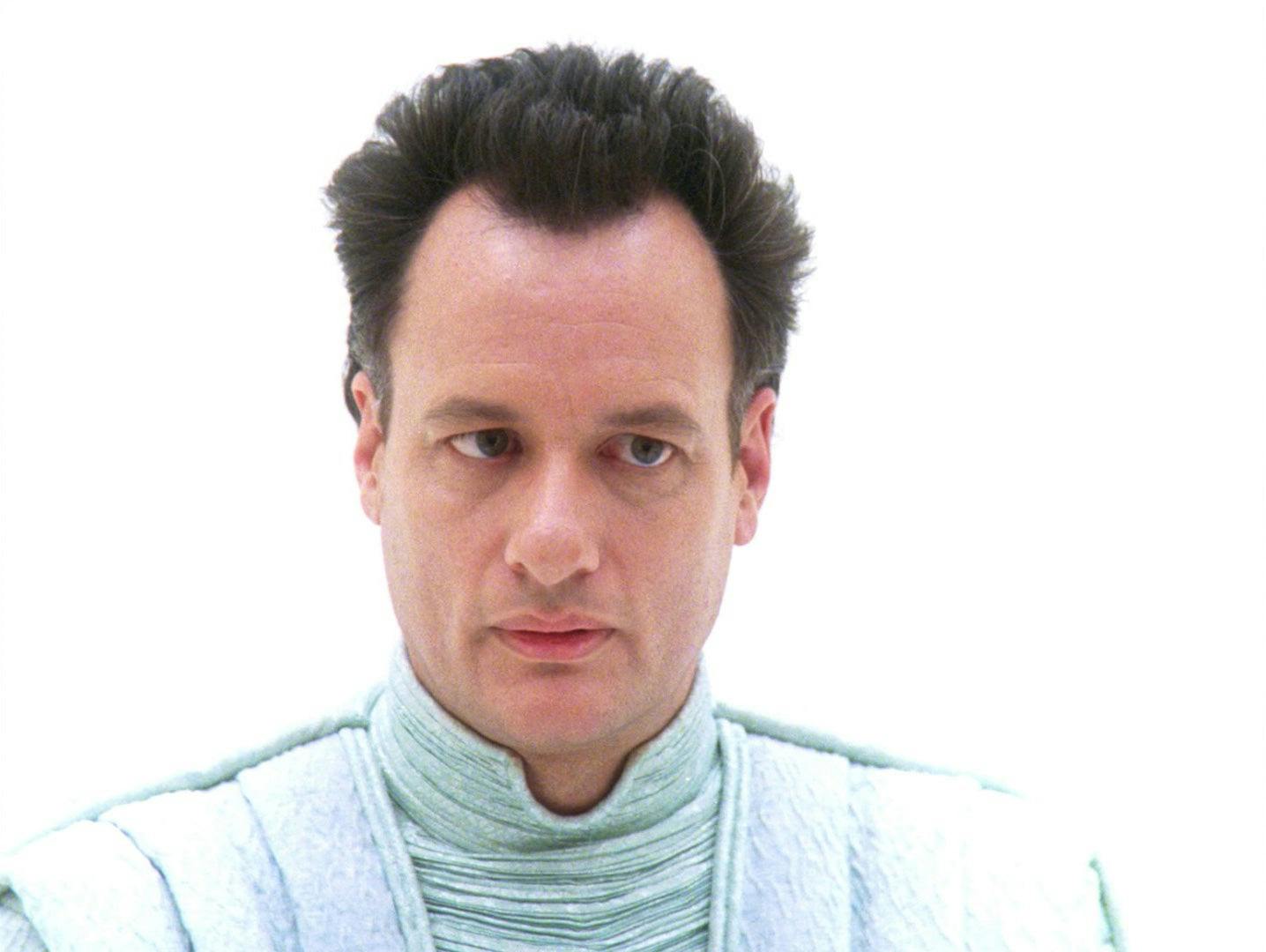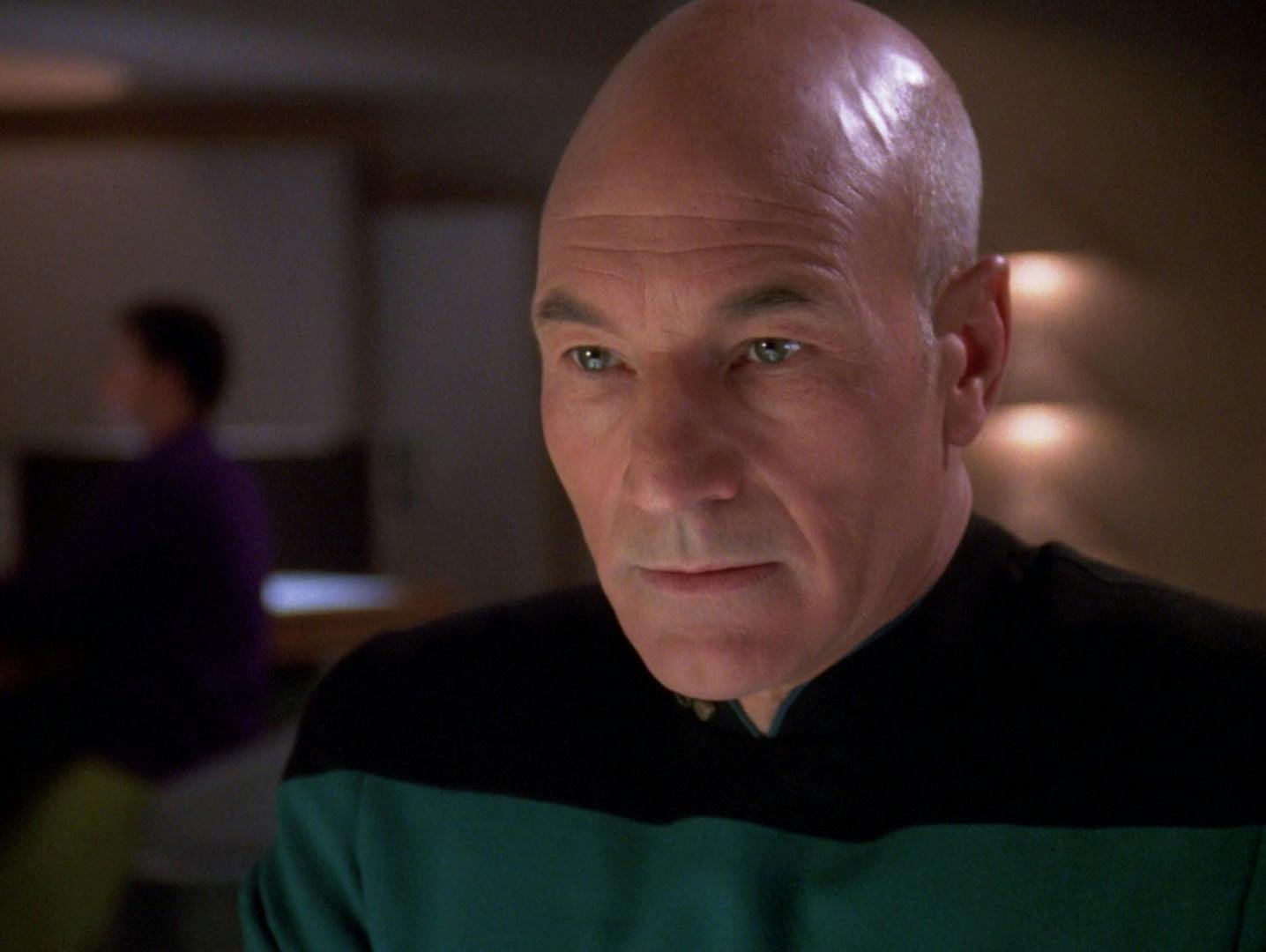Published Feb 15, 2022
How Tapestry Helped Me Grieve the Death of My Father
We all need to be reminded sometimes, about the importance of living as our most authentic and fullest selves.

StarTrek.com
Content Warning: This essay deals with issues of addiction.
This past year has forced the entire globe to profoundly consider the fragility of life. With compounding disasters of a pandemic, economic collapse, systemic and deadly racism, and the growing climate crisis, most of us have had to confront the question of our own mortality more than once in the last year. I was no exception to this when I received a call last Fall that my father had unexpectedly died.
The last time I had seen my dad was in 2007 at my high school graduation. Despite how close we were in my childhood, my father, like so many of our loved ones in this country, had his mind, body, and soul hijacked by addiction and mental illness that tore my family apart at the seams. It was devastating to see my dad, someone so hilarious and intelligent, spiral into an erratic, paranoid, and close-minded person. Addiction is a cruel disease, and our relationship would never recover from it.
My father was born in 1956, making him the perfect age when a groundbreaking new TV show came on the air in 1966: Star Trek: The Original Series. My dad was captivated, and it would stoke the fires of a lifelong love affair with science fiction. When I was born in 1988, he couldn’t wait to share the newest Star Trek show with me the moment I was old enough: The Next Generation. My best and earliest memories are of us lounging on the couch, watching and dissecting episodes together.
While our relationship had already suffered from a figurative type of death during my dad’s life, it’s another thing entirely when someone actually dies. I realized that all of the questions I had for him would never be answered, and that I would never get closure on many things. I was carrying a lot of guilt over how estranged we were in my adulthood. So, like any self-respecting daughter of a Trekkie would do, I immediately began to rewatch TNG for the millionth time as I processed my grief.
When I arrived at the episode “Tapestry,” it had been a while since I had viewed it. After the credits rolled, I was left with tears streaming down my cheeks. Rarely do shows handle death and the meaning of a well-lived life with such grace and delicacy. Its lessons resonated with me deeply and brought me such a sense of peace as I reflected on my dad’s life.

StarTrek.com
As I watched the episode I realized that, as a child, I had always viewed my father through the lens of Captain Picard. In my mind, his character has always been the archetype of a good man. Like Picard, my father was strong, sensitive, thoughtful, an avid gardener, and the only thing he ever truly wanted was to be left alone to read his book in the sun. I idolized my dad, which made it all the more difficult when the pedestal I held him on came tumbling down.
When “Tapestry” first aired, we finally pulled off Picard’s mask and explored his soul. Through the course of the show, we had only been given small nuggets of information about what Picard was like before he came to the Enterprise. Up until “Tapestry,” most of us couldn’t have imagined our stoic Captain as a brash, impulsive youth. He wasn’t always the perfectly buttoned-up, even-tempered character we’d grown accustomed to. We saw an arrogant and undisciplined Picard, a person willing to cheat and rig a dom-jot table to defend his friend, a cocky and shallow womanizer. It’s a critical reminder that we should never judge a book by its cover, because we all contain multitudes, and none of us are flawless. All of us are defined by the things others cannot see.
“Tapestry” is consistently ranked one of the best episodes of TNG, and it’s not hard to see why. With the powerhouse duo of Patrick Stewart and John de Lancie stealing the scenes with their incredible chemistry, it’s a testament to how this show is always at its best without all the frills of transporter beams and technology. Because at the end of the day, Star Trek is about more than just discovering strange new worlds and seeking out new life and civilizations. It’s also about exploring the strange worlds that exist within ourselves. It’s about what it means to be human, and what it means to understand and accept each other, despite our differences.

StarTrek.com
At the end of his life, my father didn’t have a resume filled with accomplishments. He never achieved any kind of greatness in the traditional sense. He worked as a general laborer most of his life: a carpenter, a boat builder, and a caregiver. Part of me wonders, though, if the demons that plagued him in his later years were because he lived a lot like the Picard who was simply a Lieutenant Junior Grade in the Astrophysics department. My dad played it safe, drifted through his life, and didn’t take a whole lot of risks.
That might be the biggest takeaway from “Tapestry”— one must seize the opportunities that are presented to them. Every single moment is important and plays an integral role in the larger scheme of our lives. And we only become the people we are meant to be by living as our truest, most authentic selves and accepting even the messiest parts that we would rather forget. I think my father forgot how to cradle the darkest parts of himself with love and compassion and instead allowed shame to take root in his regrets. He couldn’t forgive himself for being a fallible human.
But just because my dad left this world with a mile-long list of mistakes and without any impressive career accolades doesn’t mean his life didn’t matter or was any less meaningful. He was so much more than the sum of his lesser parts, just like Picard, just like all of us are. He was the entire galaxy manifested as an imperfect person. Our untidy parts are what makes us human; it’s what lets us know we are alive. We aren’t fully living if we aren’t failing or taking missteps. If I tried to tug on the loose threads of my own life’s tapestry, where the most vibrant threads were woven in by my father, then my whole world would unravel too.

StarTrek.com
I’ll take those untidy parts a thousand times over if it means that I also get to keep the good parts. And if Q gave me a second chance to go back, I wouldn’t change a thing. I think my dad would say the same. Even his worst mistakes served a purpose in his life, as they did in mine, and I know that I am so proud of the person I am today because of them. I hope that when he took his last breath, he was laughing with that same wild, reckless abandon that Picard did when the Nausicaan stabbed him in the heart. As Q said, life and death are not such static and rigid concepts. Now my father guides me from a place tucked between the planets and the stars. I hope he loves the view up there.
Nicole Zub (she/her) is a lifelong Star Trek fan and freelance writer based in Kentucky. She is always dreaming about a place far beyond the stars. You can find her on Twitter @zubmarine4.

